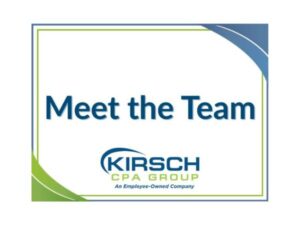How the QSB Stock Sale Rules Have Become More Favorable
Oct 01, 2025

Qualified small business (QSB) stock has received very favorable federal income tax treatment for many years. Starting in 2025, the One Big Beautiful Bill Act (OBBBA) enhances the QSB rules even more. Here’s what you need to know to take advantage of this tax-saving opportunity.
What’s Special About a QSB Corporation?
QSB corporations are a special type of C corporation. They’re generally treated as regular C corporations for legal and federal tax purposes. So, most of the standard advantages and disadvantages of C corporation status apply equally to QSB corporations, including the 21% flat federal income tax rate on corporate income. However, QSB shareholders can potentially enjoy a significant tax advantage: Sales of QSB stock may be eligible for two special federal income tax breaks:
- A gain exclusion of up to 100%, and
- A rollover privilege that allows shareholders to defer QSB stock sale gains by rolling them into the purchase of stock in a different QSB corporation.
C corporations that own QSB stock aren’t eligible for these breaks. However, sales of QSB stock held by pass-through business entities — such as partnerships, S corporations and, typically, limited liability companies — are potentially eligible. (The QSB breaks are effectively passed through to individual pass-through entity owners.)
Important: When the 100% exclusion applies to all or part of the gain, that gain is also excluded from the alternative minimum tax (AMT) and the 3.8% net investment income tax (NIIT).
Are You Eligible for Favorable QSB Stock Treatment?
Not all shares qualify for these breaks. To be eligible for the gain exclusion and gain rollover, you must meet the following requirements:
- You must acquire the shares after August 10, 1993.
- You must acquire the shares upon original issuance by the corporation or by gift or inheritance.
- The corporation must be a QSB corporation on the stock issuance date and during substantially all the time you own the shares.
- The corporation must actively conduct a qualified business. Qualified businesses don’t include:
- Service providers in the fields of health, law, engineering, architecture, accounting, actuarial science, performing arts, consulting, athletics, financial services, brokerage services and other businesses where the principal asset is the reputation or skill of employees,
- Banking, insurance, leasing, financing, investing or similar activities,
- Farming,
- Production or extraction of oil, natural gas or other minerals for which percentage depletion deductions are allowed, or
- The operation of a hotel, motel, restaurant or similar business.
There’s one other critical eligibility requirement that’s changed under the OBBBA. Before the new law, to be a QSB, a corporation’s gross assets couldn’t exceed $50 million immediately after the shares were issued. The OBBBA increases the gross asset limit to $75 million, with annual inflation adjustments after 2026.
Important: These are just some of the eligibility requirements. Before concluding that you’re investing in a QSB corporation, consult Kirsch CPA Group.
Close-Up on the Gain Exclusion Break
Generally, taxpayers selling QSB stock are allowed to exclude up to 100% of their gain as long as the stock was acquired on or after September 28, 2010. For QSB stock acquired before September 28, 2010, you can potentially exclude 75% or 50% of the gain. Your tax advisor can give you the details.
The OBBBA provides a partial gain exclusion for QSB stock held for less than five years. Specifically, for shares acquired after July 4, 2025, it allows:
- A 50% gain exclusion for QSB stock that’s held for at least three years, and
- A 75% gain exclusion for QSBS held for at least four years.
Important: For QSB stock issued on or before July 4, 2025, the pre-OBBBA rules still apply. So, the only gain exclusion that’s usually available is the 100% exclusion for stock that’s held for at least five years.
The OBBBA also modifies the limitation rule on excludable QSB stock sale gains. Before the OBBBA, your eligible gain for the tax year was limited to the greater of:
- 10 times your aggregate adjusted basis in the QSB stock that was sold, or
- $10 million ($5 million if you were married but filed separately) reduced by the amount of gain you excluded in prior tax years for sales of QSB stock issued by the same corporation. In effect, the $10 million (or $5 million) restriction is a lifetime limitation.
The OBBBA makes a favorable change to the limitation rule. For QSB stock acquired after July 4, 2025, your excludable gain can’t exceed the greater of:
- 10 times your aggregate adjusted basis in the QSB stock that’s sold, or
- $15 million ($7.5 million for separate filers) reduced by the amount of gain you excluded in prior tax years for sales of QSB stock issued by the same corporation. These dollar limitations will be adjusted annually for inflation after 2026.
For examples of how these limitations are applied, see “Applying the Gain Exclusion Limitations” below.
Another Key Rule for the Gain Exclusion
The gain exclusion for QSB stock is applied on a per-issuer, per-taxpayer basis. The issuer is the corporation, and the taxpayer is the party selling the QSB stock.
For instance, suppose you’ve owned QSB stock in two companies since 2018, and your basis in the shares of both companies is only $100. If you sell your shares in both companies on September 15, 2025, you could exclude up to $10 million of gain for each transaction (assuming you’re not a separate filer).
In this situation, the gain triggers the pre-OBBBA fixed-dollar limitation of $10 million, because the stock was purchased before the OBBBA’s effective date. And it qualifies for the 100% gain exclusion because you acquired the stock after September 27, 2010, and you’ve held the shares for more than five years.
Details of the Gain Rollover Break
If you’d like to sell QSB stock before you’ve held it five years and then invest some or all of the proceeds in other QSB stock, you may benefit from electing a tax-free rollover. This essentially allows you to sell appreciated QSB stock without triggering any federal income tax gain and without losing eligibility for the gain exclusion when you eventually sell the replacement stock.
The rollover rule limits the amount of gain recognized to the excess of QSB stock sales proceeds over the amount reinvested in shares of another QSB corporation (the replacement stock) during a 60-day period beginning on the original sale date. The rolled-over gain reduces the replacement stock’s basis. To take advantage of this break, you must have held the QSB stock for more than six months.
If the replacement stock is QSB stock when you sell it and meet the holding period requirement, the applicable gain exclusion break is available. The holding period of the stock sold in the rollover transaction is added to the holding period of the replacement stock.
What’s the Right Structure for Your Business?
Conventional tax-planning wisdom might lead you to believe that every start-up or closely held business should operate as a pass-through entity. But that assumption could be flawed if your business meets the definition of a QSB corporation. The gain exclusion breaks offered to QSB shareholders might provide greater tax benefits in the long run than those of a pass-through entity.
You can potentially convert an existing unincorporated business into a QSB corporation simply by incorporating it. And some existing C corporations may already qualify as QSB corporations. Read further to see practical examples of how the QSB gain exclusion rules apply after the OBBBA. Contact Kirsch CPA Group to discuss whether this strategy could work for your situation.
Schedule an appointment to learn how we can support you
© Copyright 2025. All rights reserved.






